Nutrition and Endocrine Research Center
Overview
Nutrition and Endocrine Research Center (NERC) started its work as an independent department in the Endocrine Research Center in 1997. Since its founding, the department has made significant contributions toward development of research on nutrition and endocrine disorders. The main area of the research has been focused on understanding of biological mechanisms underlying the effects of nutrition on risk of diabetes, lipid disorders, and cardiometabolic risk factors as well as iodine deficiency. Since 1999, along with development of the Tehran Lipid and Glucose Study, the department has focused on the roles of diet and lifestyle in the cause and prevention of non-communicable diseases and effectively contributed in design and conduct of national project “Life style modifications for prevention of non-communicable diseases”. The department was stablished as an independent research center, in 2012, by Shahid Beheshti University of Medical sciences.
Over the years, the missions of NERC have been expanded to include nutrition education (grouped and face to face education programs, design and development of educational products), development of nutrition clinic, and effective interventional programs to reduce obesity, diabetes, and cardiovascular disease. The department has also worked to translate research discoveries into interventions benefiting populations and public health policies in Iran. More than 400 national and international papers have been published and several research awards have been achieved by NERC researchers. In 2019, NERC was distinguished as outstanding research center by National Razi Research Festival.
Other missions of NERC have been included development of nutritional strategies, informing policy, the education of researchers and practitioners, and the dissemination of nutrition information to health professionals and the public.
Other research programs:
- Assessment of life style intervention on knowledge attitude and practice of school children
- Development and validation of dietary assessment tools e.g. Food Frequency Questionnaire (FFQ)
- Assessment and quality control of nutritional data gathering in research projects
- National and international publications
- Participating in the national and international scientific conferences, meetings and workshops
- Contribution in peer-review process in national and international journals
- National and international collaborations
Research Priorities
- Dietary assessments (anthropometric measurements, assessment of dietary habits, dietary patterns, macro and micronutrients and other nutritional factors relating to endocrine disorders)
- Dietary interventions (i.e. based on education, diet therapy, dietary supplements and functional foods) to reduce incidence of endocrine disorders
- Design and development of basic research (cellar and molecular research, animal experiments) in relation to nutrition and endocrine disorder
- Understanding of dietary habits (qualitative research about dietary habits in children, adolescents, and families)
- Assessment of dietary factors in relation to reproductive endocrinology (assessment of dietary factors in relation to puberty, sex hormones, menopause and reproductive disorders)
- Reports on national data
- Design and development of national guidelines
- Systematic review and meta-analysis
Important Activities
- Preparation and compilation of books and scientific papers for publication.
- Monitoring quality control of dietary data collected.
- Participating and presenting papers at local and international congresses and seminars
- Collaboration with other universities and centers of higher education, the Ministry of Health and Medical Education for nutritional education programs.
- Extensive collaboration in design and implementation of the national program of “life-style change intervention to prevent non-communicable diseases".
- Standardizing methods of assessing nutritional status and their reliability and validity.

